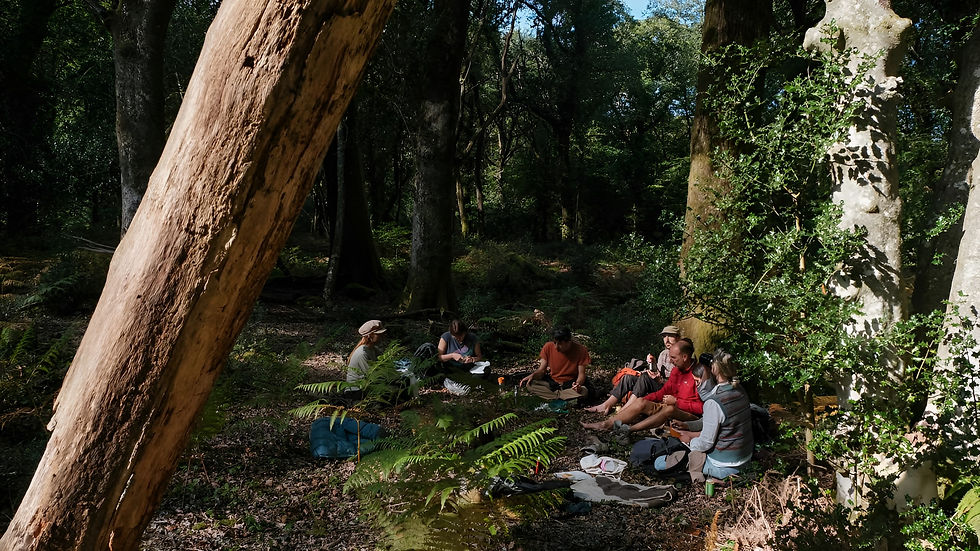
The origins of Shinrin Yoku
The Japanese Department of Forest and Fisheries coined the term Shinrin Yoku in the early 80s to tackle health and stress issues in the urban population. The development of Forest Bathing as a therapeutic practice was a response to the rapid urbanisation and technological advancements being experienced in Japan. Since the 1970's Japan has seen substantial increases in anxiety and stress-related illness, attributed to increased urbanisation and working long overtime hours. Shinrin Yoku, which translates to 'Forest Shower' or 'Forest Bath', involves immersing oneself in nature's elements to alleviate stress problems.
While the introduction of the term 'Shinrin Yoku' into the Japanese vocabulary greatly popularized the act of Forest Bathing, the concept of Forest Bathing draws inspiration from ancient Shinto and Buddhist practices that emphasize the spiritual and healing qualities of nature. For centuries, Japanese culture has celebrated the connection between humans and the natural world, with forests being considered sacred spaces that offer tranquillity, beauty, and spiritual renewal. The Japanese have been practising this for millennia, immersing themselves in the natural environment, connecting with the earth and its elements, and experiencing a sense of calm and rejuvenation. In a world that is increasingly disconnected from nature, the ancient Japanese traditions of Forest Bathing offer a powerful and relevant reminder of the need to stay grounded in the natural world and reconnect to our roots. It offers an affordable and inclusive way to consciously embark on a holistic approach to wellness that nourishes the mind, body, and soul.
The findings of the initial studies showed that forest environments were found to reduce stress, lower blood pressure, boost the immune system, and improve mood. These results led to the recognition and promotion of Forest Bathing as a therapeutic practice in Japan and as a form of preventative healthcare. In the 1990’s the Japanese Government started to fund designated ‘Shinrin Yoku Trails’. Starting as short walks in the forest for volunteers, forest bathing has now evolved into longitudinal controlled trials, with over 30 years of scientific studies backing up the physical, mental, and spiritual benefits of forest bathing. What religious leaders have intrinsically known for two thousand years, modern researchers are now confirming with science and data.
The science of Shinrin-Yoku

Poetry books
Benedictus
John O'Donohue
Devotions
Mary Oliver
The practice of the wild
Gary Snyder

Books
Walking in the woods
Yoshifumi Miyazaki
Finding the mother tree
Suzanne Simard
The Hidden Life of Trees
Peter Wohlleben

